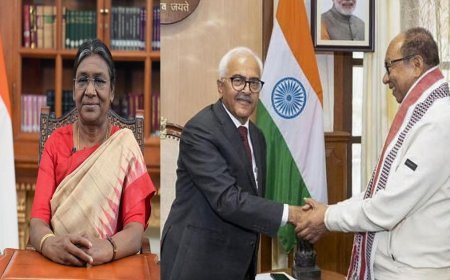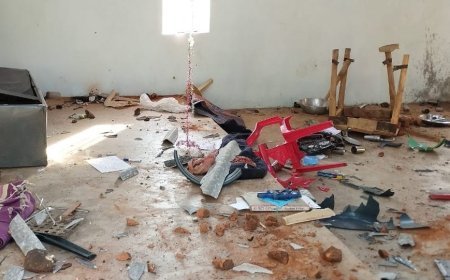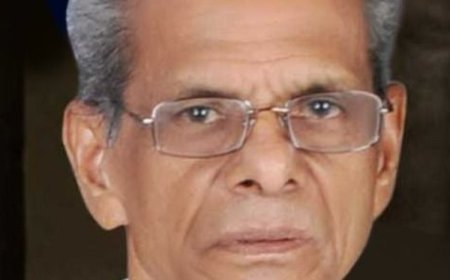Christian persecution is increasing dramatically around the Globe
A recent report on the global persecution of Christians has revealed a rise in violations in nearly two-thirds of the countries assessed.
The study, conducted by Aid to the Church in Need, a Catholic pontifical charity, titled "Persecuted and Forgotten?" indicates that from August 2022 to June 2024, the persecution of Christians has intensified in 60% of the 18 countries analyzed.
The remaining countries showed no significant changes, with the exception of Vietnam, a communist nation that has experienced improvements in the treatment of Christians following the restoration of diplomatic relations with the Vatican.
For the first time, this biennial report included Nicaragua among the nations where the faithful face suffering due to state authoritarianism or extremist attacks.
The report's introduction, released in London on October 22, highlighted that Christians worldwide are increasingly at risk of harassment, arrest, and violence, with incidents of church burnings, abductions, and killings based on their beliefs.
It noted that the rise in religiously motivated harassment against Christians is unprecedented, corroborated by findings from other organizations like the Pew Research Center, which reported that Christians face harassment—ranging from verbal abuse to murder—in 160 countries.
A significant observation was the shift in the center of militant Islamist violence from the Middle East to Africa, where Christians in nations such as Burkina Faso, Nigeria, and Mozambique are facing severe terror.
Additionally, the report indicated that Christians are often regarded as enemies of the state in countries like China, Eritrea, India, and Iran, where they endure increasingly oppressive measures.
The report also emphasized the heightened threats to Christian children, particularly girls, who are vulnerable to abduction, sexual violence, forced marriages, and coerced conversions.
In the introduction to a recent report, Archbishop Bashar Warda of Erbil, Iraq, highlighted the deteriorating state of religious freedom in the country. He reflected on the ongoing impact of the genocide experienced by Christians, which has led to a significant decline in their population. A decade after the Islamic State group forced countless Christians to flee, he stated, "The repercussions of our suffering continue to loom large, as the exodus of Christians persists, putting the Church at risk of disappearing from regions where our roots trace back nearly to the time of Christ."
Currently, the Christian population in Iraq has dwindled to fewer than 200,000, a stark contrast to the 1.5 million present in 2003, the year of the U.S.-led invasion.
Archbishop Warda urged, "It is our hope that those who engage with this report, including governments and influential entities, will go beyond mere acknowledgment of Christian persecution. They must translate their words into tangible actions—firm and decisive policy commitments—to support those who are persecuted solely for their faith. It is crucial that they heed early warnings, as outlined in reports like this, to avert a repeat of our tragic experience in Iraq in other regions."
He remarked that the fear instigated by the rise of jihadist groups remains vivid in his memory, yet he also recalls the hope of the people and the generosity extended by our global community. He urged everyone to keep those who are suffering in their thoughts and prayers.
The report indicates a significant decline in the Christian population in Syria, which has decreased from 1.5 million at the onset of the civil war in 2011 to merely 250,000 today.
It highlights that Islamist violence has resulted in 2 million refugees in Burkina Faso alone, amidst a broader trend of "trans-national Islamist militant aggression" in the southern Sahara and the emergence of "opportunistic caliphates" in regions with Christian populations.
In Burma, 85 churches have been destroyed, while China has detained up to 10,000 Christians. In India, there have been 720 reported incidents of persecution against Christians, including the arrest of 855 individuals in Uttar Pradesh under anti-conversion laws.
Recent data from Pakistan reveals a troubling increase in the abduction of girls and young women from minority faiths, a pattern that is also evident in Egypt.
The report notes that from 1987 to 2022, a total of 2,120 individuals in Pakistan have faced accusations of blasphemy, a charge that can result in the death penalty.
For the first time in the 18-year history of this report, Nicaragua has been included due to severe oppressive actions against Christians, particularly the mass detention and expulsion of clergy, including all members of the apostolic nunciature.
Conversely, Vietnam has been classified as "slightly improved" due to a reduction in bureaucratic hurdles for the registration of religious groups.
What's Your Reaction?
 Like
0
Like
0
 Dislike
0
Dislike
0
 Love
0
Love
0
 Funny
0
Funny
0
 Angry
0
Angry
0
 Sad
0
Sad
0
 Wow
0
Wow
0








































